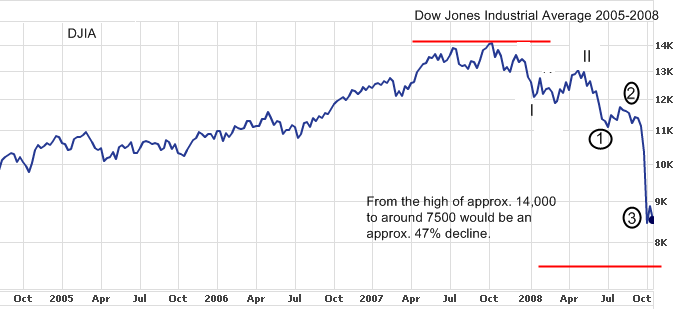As we begin a new year many of us look at goal setting for the 12 months ahead. Whether it be health, financial, happiness or otherwise, this goal setting is often focused on the event instead of the process.
- Chris sold his business and is retiring at 30
- Matt has a 6 pack
- Theresa has a luxurious new car
- Shane rides his mountain bike like a pro
- Andy bought a million dollar mansion
- Nina made that marathon look easy
- Jack does a heck of a lot of travel
When we see successful people, we’ve been conditioned to think that they are lucky, naturally skilled, had rich parents or some other justification as to why they can succeed and we can’t. What we’re seeing is the event.
The reality however, is that there was a lengthy process involved in the lead up to these events.
- Chris worked 70 hours a week, went through a heck of a lot of stress and took minimum wage as his salary for 8 years leading up to selling his company.
- Matt trains for 2 hours a day, 5 days a week and hasn’t eaten any sweets for 2 years.
- Theresa studied at university for 5 years and got top grades to get her high paying job.
- Shane’s been both skills and fitness training on his bike for 12 years to get to his skill level.
- Andy took on a huge amount of risk by starting his business and when it took off, he saved 80% of his salary for 9 years before he was in a position to buy his mansion.
- Nina trained 6 days a week before the marathon and stretches every night for 1 hour in front of the TV.
- Jack built a location independent business on the side for 2 years while working full time. He took a pay cut to work and travel at the same time, but being frugal he can afford it.
These people had persistence to stick with it through the tough times. Their good habits (the process) got them to where they are today (the event).

Typical Goal Setting Mistakes
So when it comes time to set our own goals at the beginning of a new year, it’s common for us to go about the event:
- Have $50,000 in my investment portfolio by June 31
- Get a new job that pays 20% more than my current job
- Live and work in Japan for a year
- Hit my $500,000 sales target this year
- Retire by 40
- Lose 10kg by end of December
While it’s great to visualise your future and where you want to be, your lack of control in many situations can really cause trouble.
- While you have control over how much you can save and invest, you can’t control the markets. If the market drops 25% on June 20, despite your best efforts you can miss meeting your goal.
- In a recession, jobs that come with pay rises are hard to come by.
- With a sudden influx of expats to Japan, all of the English teaching jobs are taken. What now?
- Despite a great start to sales in the year, it’s discovered that your best selling product has a manufacturing flaw. It’s not your fault, but as a result the brand name is now tarnished and near impossible to sell.
- You have it all worked out – you can save hard, build a freedom fund and retire by age 40 so long as you don’t have kids and live frugally. But your wife just told you she’s pregnant and the doctors are telling you they’re twins.
- Despite what the personal trainer is getting you to do, the weight doesn’t seem to be coming off as fast as you thought.

Using Positive Habits for Success
Some of the places in my life where I’ve made the biggest improvements with the least effort have been through habits without goals. Especially when the thing became a habit because I enjoyed it. I’ve found repeatedly that any goals I don’t reach are very, very depressing.
John Ainsworth
The harsh reality of the world is that despite your absolute best efforts – some goals may be out of your reach. By focusing on habits instead of the end goal, you can celebrate success in the form of your best effort, instead of the goal which likely has components that are out of your control.
In the above scenarios, some useful habits may have been to:
- Invest $500 into my investment portfolio each month
- Take the time to write a custom cover letter and curriculum vitae for each suitable job opportunity that comes up
- Save $50 per week for flights and setup costs in Japan, and email 1 language school each month to enquire about job opportunities
- Contact 25 sales leads per week
- Invest 70% of my income into my freedom fund
- Lift weights 3 days per week, do 1 day of cardio per week and eat 250 calories under my BMR each day.
Probably the most common reference to both habits and success are from Stephen Covey’s “The 7 Habits of Highly Effective People“. Covey recommends 7 (and later 8) habits that individuals take on to help them achieve effectiveness in life.
In the context of this post however, I’d like to take 2 rules to show how they can help you hit your goals and make you an expert in executing your process.
Begin With the End in Mind (Covey’s Rule #2)
By defining the goal, or the event above, you have visualised your end goal. You can’t do it all, but you can do a few things very well.
Don’t make off the cuff goals that may or may not be fulfilling.
If your ladder is not leaning against the right wall, every step you take gets you to the wrong place faster.
Stephen Covey
One way to be clear on who you are and want to be is to develop a personal mission statement. This gives your goals focus, helps you plan for success and reinforces who you really are. Whenever distraction or uncertainty sets in, you can read your statement and make sure your focus is still sending you in the right direction.

Put First Things First (Covey’s Rule #3)
Simple fact: you cannot do everything.
In the age of FOMO it’s no surprise that so many people seem to both aspire to and struggle with achieving lofty goals. The unfortunate reality is that those achieving lofty goals are often sacrificing a heap of other things for that greatness.
- I know people that have travelled the world, have a kickass Instagram account. To make this happen, they own next to no possessions and have only few hundred dollars in the bank.
- Even at amateur levels of competition, friends have chosen to work (and earn) less to give themselves more time to train.
- Entrepreneurs regularly sacrifice health and well-being (often knowingly and temporarily) in pursuit of financial or business success.
- Many marriages have been abandoned while one of the individuals have pursued a goal “at any cost”.
Those pursuing extreme goals often need to give them priority over every other aspect of their life. Thankfully, if you aren’t trying to set a new record, a bit more balance is possible – but this information does help us to see that you’ll need to exclude some “nice to haves” in pursuit of “what I really want”.
The purpose of this habit is to allow you to focus on the few things that really matter and put them ahead of everything else.
Identifying Your Habits
I’m probably going to butcher Covey’s excellent work here by trying to combine it with the Pareto Principle but it’s happening.
Covey’s Rule #3 refers to what is important and what is urgent. He gives priority to tasks in the following order:
- Important and urgent
- Important and not-urgent
- Not important and urgent
- Not important and not urgent
Though we’re getting nerdy here, a very similar model is used by many governments and corporations around the world to identify priority.
The Pareto Principle, also known as “the 80/20 rule”, suggests that 80% of your outcomes come as a result of 20% of your actions. While the ratio is heavily debated, the reality is that some actions have a greater effect than others
Combining these two theories, I’m going to over-simplify:
- identify the habits that will get you closer to your goal as soon as possible
- identify the habits that will get you closer to your goal with the least amount of effort
- identify how often these habits can be repeated (because it’s counter productive to lift heavy weights 12 hours a day, 7 days a week)
I find it most helpful to write down my long term goal, then write down 3-4 high impact habits that can be repeated often to help achieve that goal.
As an example, here are a few of the habits I’ve identified for this year:
- Neck stretch/exercise routine every morning
- Raise my stand up desk every morning
- Write 3 things I’m grateful for every morning in my journal
- Write 1 blog post on jaserodley.com each month
- Make 5 outbound business sales calls/emails per week
- No coffee after 2pm
- Answer 1 Quora question per week
- Spend 1 hour studying Spanish per week
- 3 days of my weightlifting program per week
- 1 day of yoga per week
- Get 15 minutes of fresh air daily
You’ll see that none of these are particularly challenging or taxing, but they’re all helping me get to different goals here and there.
Tracking Your Habits for Success
To make sure you’re getting the most out of your new habits, you’ll need some way to make sure you are actually using them.
A fine balance between going easy on yourself and staying accountable is needed here. Mistakes will happen, habits will be missed, but get back on board as soon as possible. Often while I’m travelling some of my habits can fall by the wayside but as soon as I’m home I start fresh.
I personally use a blank journal to write my day’s plan in every morning, with a personal Trello board to identify both daily/weekly/monthly habits and one off tasks.

There are no rules here! My wife prefers to use her photo frame/paint chip calendar to track what she’s been up to, and many of my friends use a whiteboard to do the same thing.
Ultimately what works best will be dictated by whether your habits are more on the daily (journal) or monthly (calendar) end of the scale.
Celebrate Your Success
Anything worth achieving takes a shitload of thankless effort before coming to fruition. If you have lofty goals it can often feel as though you are getting nowhere but in actual fact it’s probably not the case.
Remember to take some time out to review how well you’ve stuck to your habits. If some have been hard to make happen consistently, you may need to evaluate and adjust them (or lower the priority of other habits).
Most importantly however, is recognizing your success in sticking to your habits. Whether you are building a business to sell, training for an Ironman or trying to visit every country in the world, it’s going to take some time to achieve. Celebrating the little wins along the way helps you to stay happy and positive, ensuring your long term success.
I learn more and more about this as the years roll on – do you have a similar process involving habits, goals and success? I’d love to hear from you either by comment or on Twitter.

Another brilliant blog Jase! Very inspiring and So much to be learnt from Steven Covey.
Looking forward to your next blog.
Dani
Thanks Dani! Yes, Mr Covey was a clever man.
It has been an absolute pleasure meeting you in FITUR.
And reading you know. I will answer your e-Mail as soon as I can.
Take care!
Marga
Thanks for commenting Marga – likewise, it was great to meet you too!